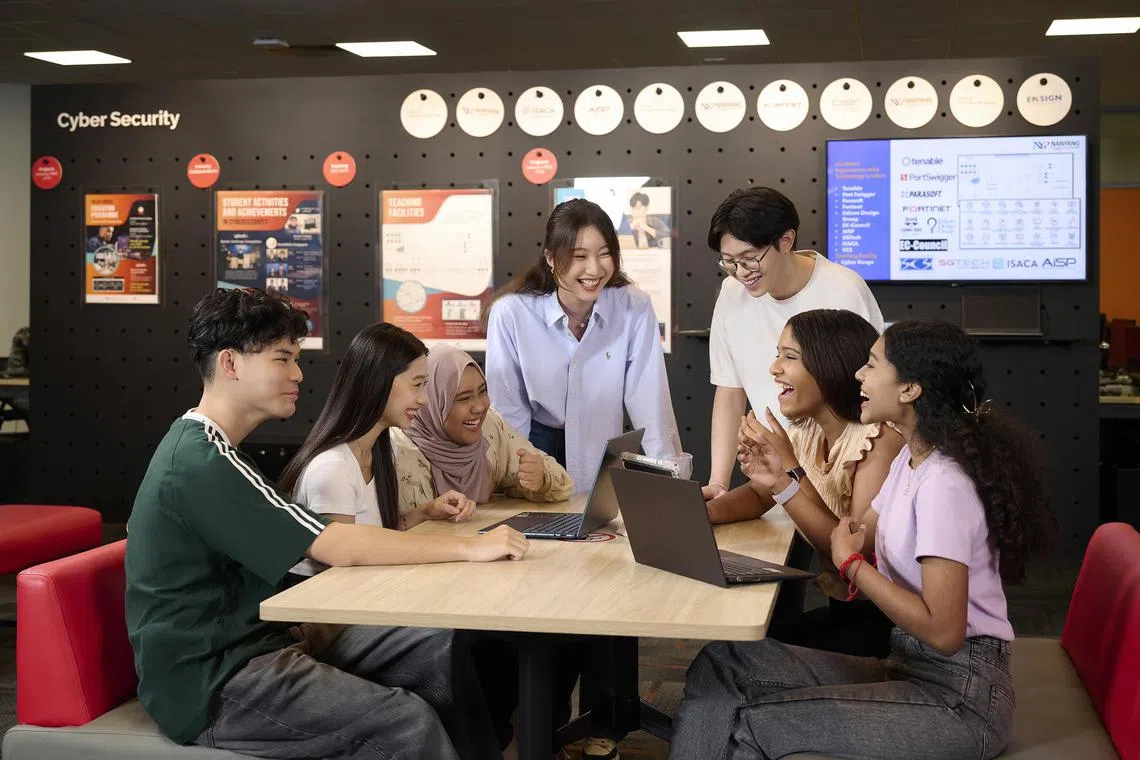Singapore polytechnic Streamlines IT Curriculum: Students Gain Time for certifications and projects
Table of Contents
Starting April 2025, students at Nanyang Polytechnic‘s (NYP) School of Facts Technology in Singapore will have the opportunity to significantly enhance their learning experience. A new credit exemption program will allow students who successfully completed O-level computing to bypass a foundational programming module, freeing up valuable time for professional development and extracurricular pursuits.
This innovative initiative, born from a recent curriculum review, recognizes the overlap between the O-level computing curriculum and the introductory programming competency unit (CmU) module. The review revealed that a substantial majority—90%—of students who passed their O-level computing exam achieved at least a B grade in the CmU module. This data-driven decision allows NYP to optimize its curriculum and provide students with more adaptability.
the exemption saves students approximately 60 curriculum hours per semester. This newfound time can be strategically allocated to various enriching activities. Students can pursue industry-recognized certifications, participate in competitive programming events, or engage in advanced projects under the mentorship of experienced professionals.The program applies to the Common ICT Program and all four diploma tracks offered by the school: applied AI and analytics; business and financial technology; cyber security and digital forensics; and information technology.
Course managers will proactively inform eligible students about the exemption program at the start of their first year in April. They will also provide guidance on the application process,ensuring a smooth transition for all participants.
The impact of this program is already resonating with students. Ker Hong Xuan, an 18-year-old first-year student in cyber security and digital forensics, expressed his enthusiasm: “I love the idea of freed-up curriculum time. I can join in the hackathons the school organises,and I could have got my Certified Ethical Hacker certification even earlier,” he said.
This initiative by NYP reflects a broader trend in higher education towards more flexible and student-centric learning models. By recognizing prior learning and providing students with more control over their academic journey, NYP is empowering its students to achieve greater success in their chosen fields. The program serves as a model for other institutions seeking to optimize their curricula and better prepare students for the demands of the modern workforce.
For U.S. readers, this highlights the growing importance of recognizing prior learning and providing students with flexible pathways to success in STEM fields. Similar initiatives are being explored in American universities and colleges to better meet the evolving needs of students and employers.
Singapore Polytechnic Streamlines IT Curriculum: An Interview on Evolving Education Models
Nanyang Polytechnic (NYP) in Singapore is making waves in the higher education world with its innovative approach to IT curriculum design. Starting in April 2025, the school will implement a credit exemption program that allows students with prior knowlege in O-level computing to skip a foundational programming module, opening up valuable time for specialized learning and extracurricular activities.
We spoke with Dr. Emily Tan, a leading expert on educational technology and curriculum development at the National Institute of Education, to gain deeper insights into the impact of this program and its broader implications for the future of STEM education.
Recognizing Prior Learning: How Does This Benefit Students?
Senior Editor: Dr. Tan, what are your initial thoughts on NYP’s decision to implement this credit exemption program?
Dr. Emily Tan: I think it’s a fantastic move. Recognizing prior learning is crucial in today’s educational landscape. Many students enter higher education with notable knowledge and skills already acquired through various pathways, like online courses or vocational training. By acknowledging this prior knowledge,NYP is not only saving students valuable time but also demonstrating a commitment to personalized learning experiences.
Senior Editor: How does this approach benefit students beyond just saving time?
Dr. Emily Tan: Freeing up time in the curriculum allows students to engage in more specialized learning activities. this could involve pursuing industry-recognized certifications, participating in cutting-edge research projects, or even launching their own start-ups. It empowers them to tailor their education to their individual career goals and interests.
The Future of Curriculum Design: Flexibility and Student Choice
Senior Editor: Do you see NYP’s initiative as part of a broader trend in higher education?
Dr. Emily Tan: Absolutely. We’re witnessing a shift towards more flexible and student-centric curriculum models worldwide. This approach recognizes that students learn in different ways and at different paces. Institutions that prioritize adaptability and choice will be better positioned to attract and retain top talent in the years to come.
Senior Editor: What are some other innovative educational approaches that you find especially promising?
Dr. Emily Tan: I’m excited about the growing use of project-based learning, where students work on real-world challenges and develop crucial problem-solving skills. I also see a lot of potential in competency-based education, which allows students to progress based on demonstrated mastery of skills rather than time spent in the classroom.

